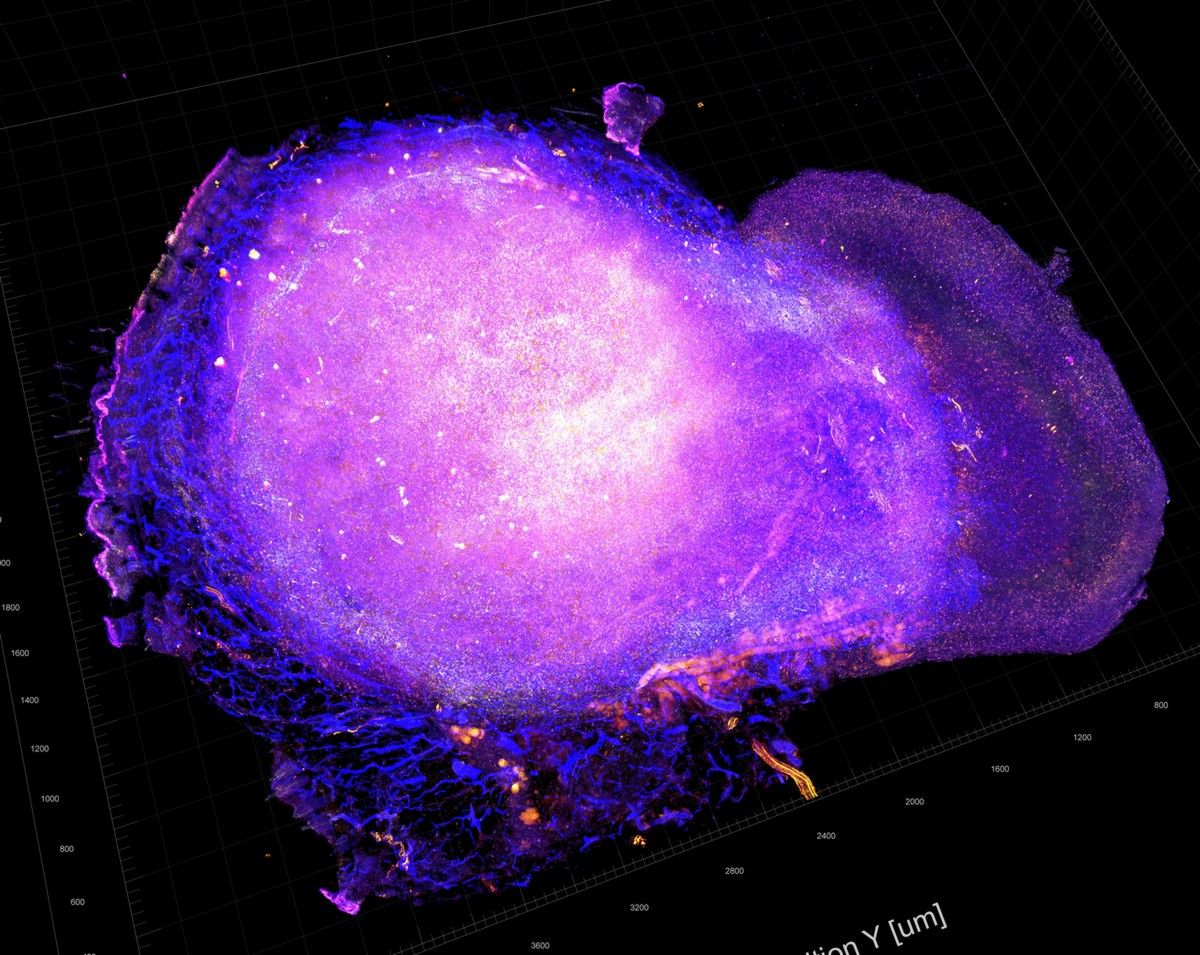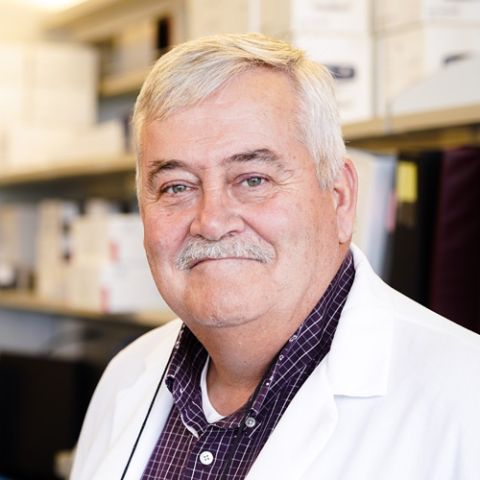By the time Sara Sade learned that she had metastatic melanoma, hundreds of tumors had developed in her body, “from my feet to my head,” she recalls. “The disease had spread like wildfire.”
At that stage, Sara’s life expectancy was a year or less. But her doctor at Roswell Park treated her with ipilimumab (brand name Yervoy®), a type of immunotherapy called a checkpoint blockade or checkpoint inhibitor. After four infusions, the tumors disappeared — and today, six years later, Sara remains cancer-free.
“Checkpoint inhibitors are the main type of immunotherapy used today,” explains Carl Morrison, MD, DVM, President and Founder of the Roswell Park precision-medicine spinoff company OmniSeq®. “You see ads all day long for Keytruda® and Opdivo®. They’re a revolution in immunotherapy. They stand to replace virtually all chemotherapy in the next 5 to 10 years. In fact, they have already replaced half of chemotherapy in half of lung cancer cases, and they’ve become virtually the line of choice for metastatic melanoma.
“One reason checkpoint inhibitor therapy has radically changed the world of therapies is that for the first time, people are willing to say the word cure. Somewhere between 5 to 15 percent of these patients actually establish a cure, or at least long-lasting durable responses.”
Pinpointing Choices From a Growing List of Immunotherapies
Checkpoint inhibitors are just one type of immunotherapy offered at Roswell Park. The use of immunotherapy drugs to fight cancer is growing every year. Along with FDA-approved immunotherapies, Roswell Park offers clinical trials of new immunotherapies, including many that were developed right here.
But there’s a hitch: Not all patients respond to all types of immunotherapies. Patients with colorectal cancer, for example, “have had a relatively low response to checkpoint inhibitors,” says Dr. Morrison; those patients often do better with more conventional therapies. So how can doctors identify which treatments have the best chance of working in a specific patient? How can they quickly zero in on the best options on a list of immunotherapies that grows longer every day?
In June of 2017, OmniSeq® launched a new test, Immune Report Card®, which identifies all immunotherapies — or combinations of immunotherapies — that are likely to work best in a specific patient with late-stage cancer. It analyzes tissue samples from the patient using five different, highly advanced testing methods, to guide the creation of the best treatment plan.
Immune Report Card has already become a “high-demand test” at institutions across the country, Dr. Morrison says. It’s unique because “no one is analyzing multiple immune-related genes at one time and comparing the results to have a holistic view of the tumor microenvironment.”
Each patient’s report lists not only the best options for the first line of treatment but also follow-up options in case the first treatment doesn’t work, or stops working. This is important, because some patients live many years by “leapfrogging” from one treatment to another. “You need to make the most of your first-, second- and third-line treatments from the very beginning,” says Dr. Morrison. “If you have stage 4 disease, you need a rational decision-making process of how you go from the first treatment to the second, and extend those lines of therapy as long as you possibly can.
“Immune Report Card can help oncologists make those first-, second- and third-line choices.”
Immune Report Card is not covered by insurance at the present time, but thanks to generous donations to the Roswell Park Alliance Foundation, funds have covered the cost of testing for 709 Roswell Park patients whose doctors determined might benefit from identifying precision-medicine treatment options.
Donate to Roswell Park
Your donation will allow Roswell Park to pursue innovative research and continue offering the latest in cancer treatment and care.
Make Your Gift Today!Editor’s Note: Cancer patient outcomes and experiences may vary, even for those with the same type of cancer. An individual patient’s story should not be used as a prediction of how another patient will respond to treatment. Roswell Park is transparent about the survival rates of our patients as compared to national standards, and provides this information, when available, within the cancer type sections of this website.


